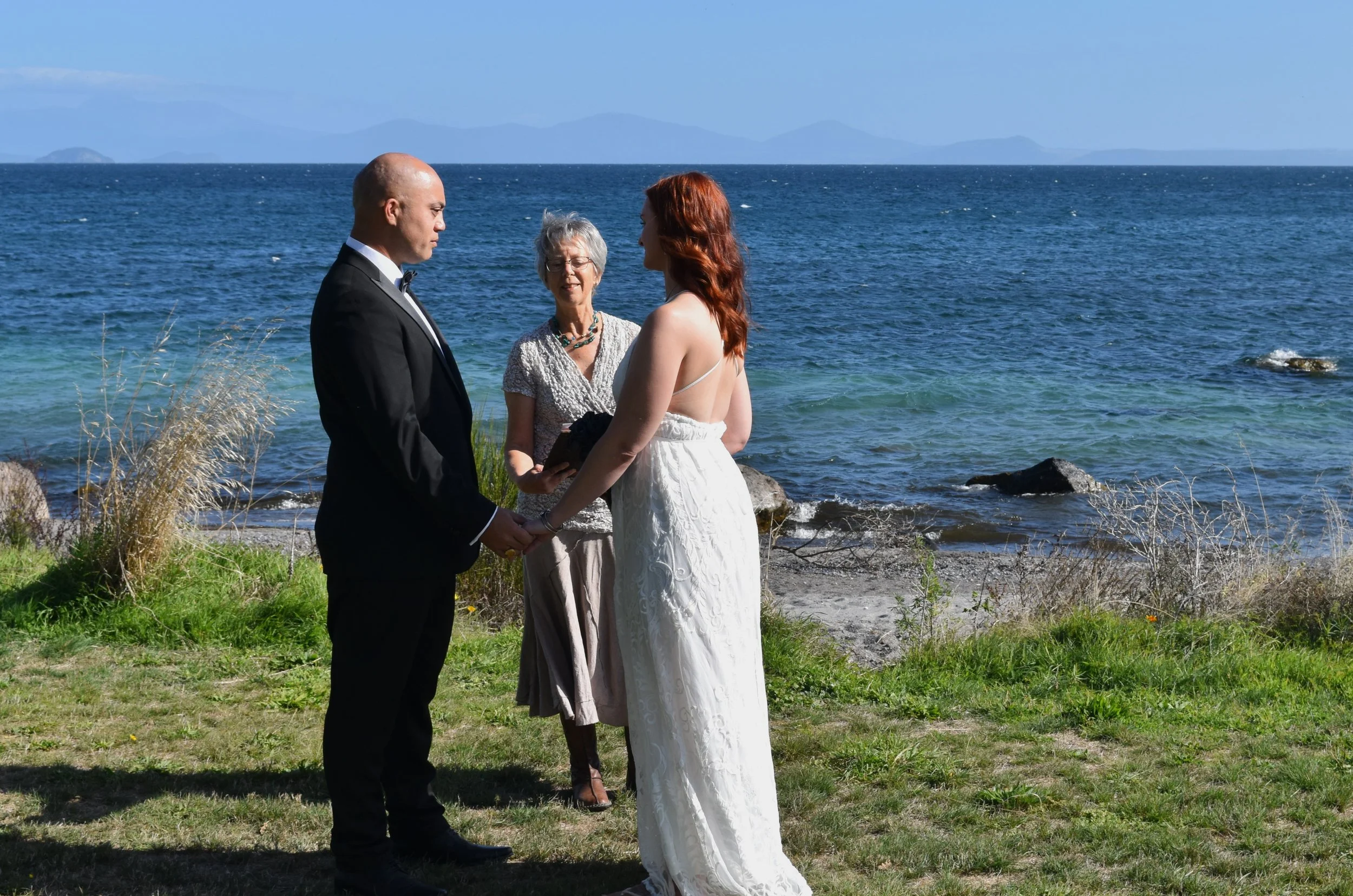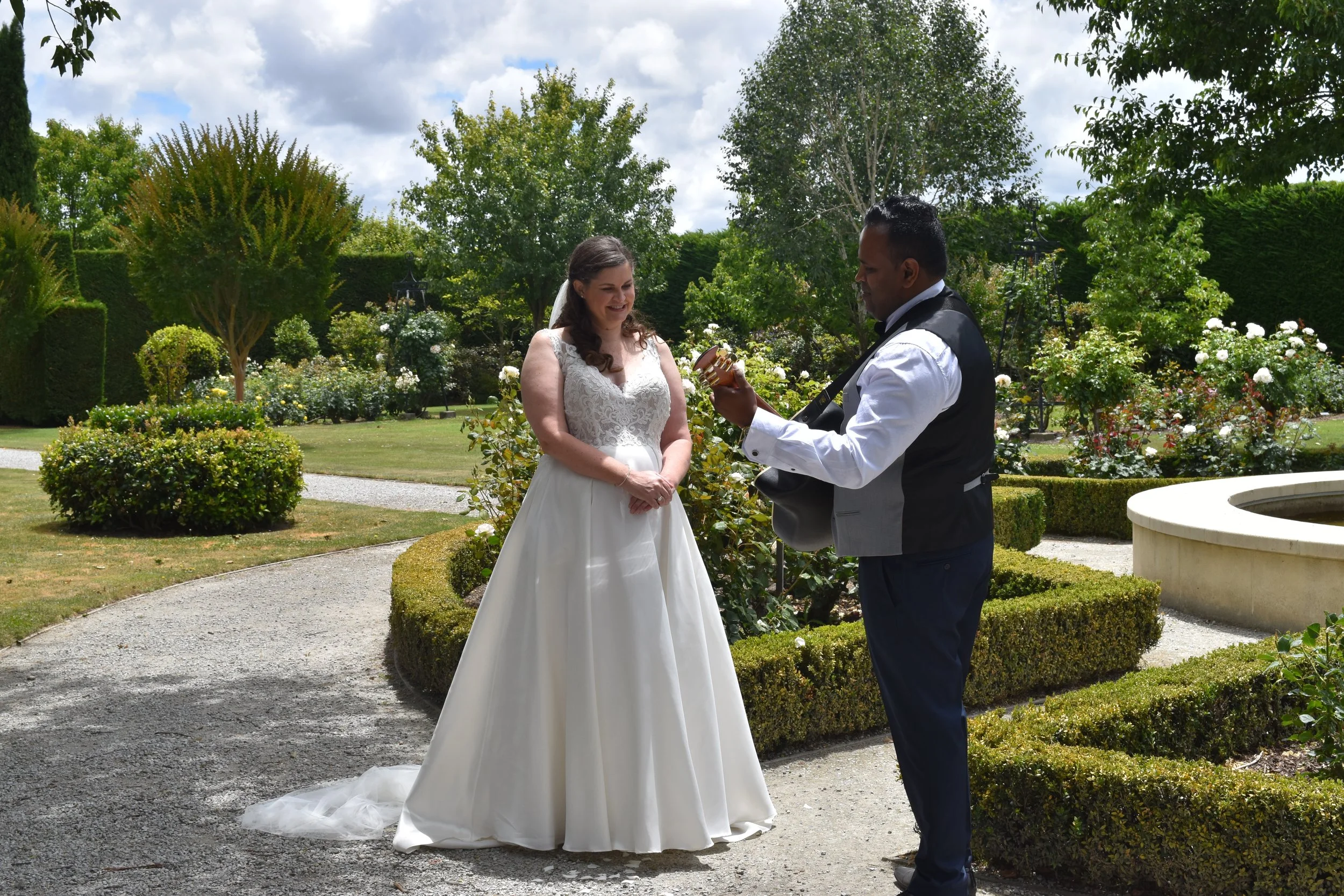Frequently asked questions
If your questions are not answered here, please do get in touch.
-
I do. If you love each other enough to make a serious commitment and/or want to celebrate your love with people who are important to you, then I am happy to officiate for you.
-
You should apply online. See www.govt.nz/browse/family-and-whanau/getting-married/how-to-get-married-in-nz/ Once processed (allow at least three working days) the licence can be couriered to you or it can be emailed, either to you or to me, your celebrant. The licence is valid for three months from issue. Application paper form: Notice of intended marriage form BDM 60 (PDF 271KB)
-
Yes, it is a popular way to personalise your ceremony, unique to you and your partner. They can read poems, biblical or other relevant texts etc. Overly personal/comical content is usually relegated to the reception.
-
Start by writing some key points about what you love most about each other. (Keep this list somewhere safe as it’s important to remember why you married!) We can talk about the effective format and the legal requirements of the vows. Enjoy taking the time to write your own vows as it can make your ceremony more sincere.
-
Yes, with the wonders of technology, it doesn't matter where you are based for the planning stages, however, the ceremony must be conducted in New Zealand.
-
In New Zealand, changing your name to a spouse's surname after marriage is straightforward: you don't need to complete a specific form with Births, Deaths and Marriages (BDM), but you can use your marriage certificate as proof when updating your details with organisations like banks and for new documents. You are free to keep your own name, combine names, or hyphenate them, and you don't usually need to register these changes with BDM unless you want an official name change certificate or to register the change on your birth certificate.
www.govt.nz/browse/family-and-whanau/getting-married/changing-your-name-when-you-get-married/
-
In New Zealand, your will is automatically revoked upon marriage unless it was made in contemplation of the marriage. This means if you get married and don't create a new, valid will, you will die intestate, and your assets will be distributed according to the default rules of intestacy rather than your wishes. You must update or create a new will to ensure your assets are distributed as you intend and to appoint guardians for any children.
You may also find more information to answer your questions here:









